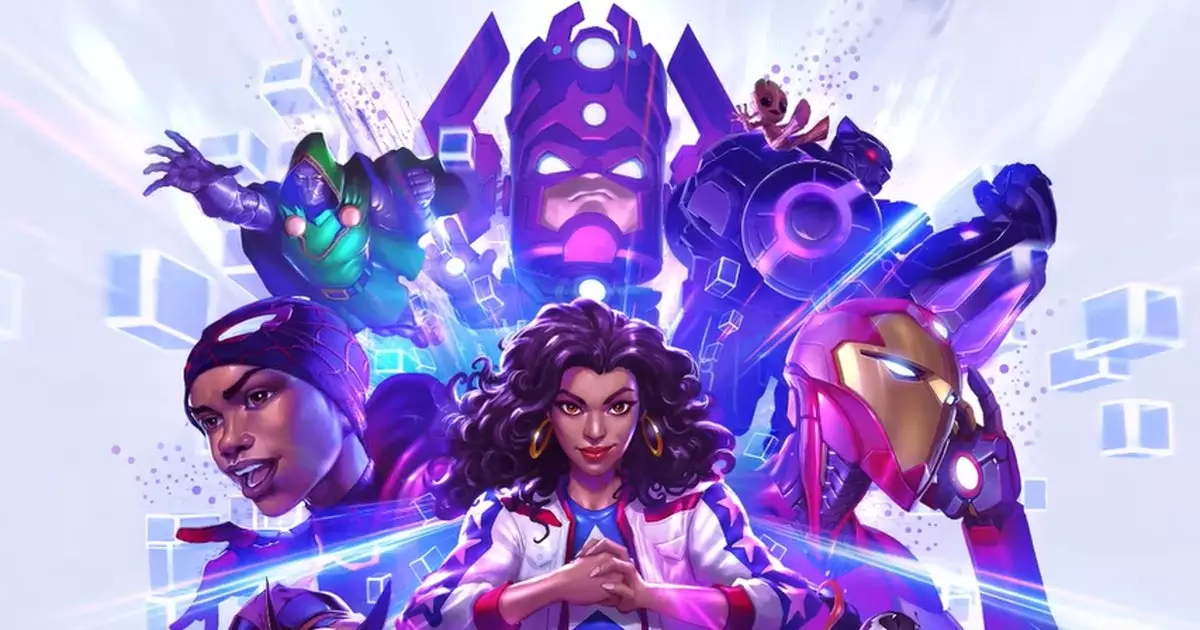The gaming world often intertwines with broader socio-political developments, and the predicament of Marvel Snap offers a prime example. As tensions between the U.S. government and ByteDance—the parent company of TikTok—intensify, the consequences extend far beyond social media into the realm of gaming. The sudden removal of Marvel Snap from the U.S. app stores illustrates the intricate relationship between national security concerns and the ever-evolving entertainment landscape.
On January 18th, 2025, the game Marvel Snap, developed by Second Dinner and published by ByteDance-owned Nuverse, faced an abrupt shutdown in the United States. This unexpected turn of events left mobile players at a standstill, with many losing access to a game that has cultivated a strong community. While the title remains accessible on platforms like Steam, players encountered login issues that hampered their overall experience. Such interruptions can frustrate users, particularly when they are engaged in competitive gameplay or in the midst of events that require consistent participation.
Second Dinner, the California-based developer, promptly responded to the crisis, indicating an expectation to restore the game within 24 hours. The urgency of this message highlights the significance of maintaining player engagement in a digital age where competition is fierce, and player loyalty is paramount.
At the heart of the Marvel Snap disruption lies the web of regulatory scrutiny surrounding ByteDance due to concerns that its popular platform, TikTok, poses a national security threat. Lawmakers argue that TikTok could facilitate data harvesting by the Chinese government, compromising the privacy of millions of American users. The fears surrounding data security are amplified by TikTok’s substantial user base in the U.S.—approximately 170 million individuals utilize the app regularly.
Despite the swift backlash, TikTok has consistently maintained that it operates transparently and does not manipulate data for government agendas. As a countermeasure, TikTok claims to store U.S. user data solely outside of China, specifically in Singapore. However, allegations have persisted, leading Congress to push for stringent measures against the platform. The enactment of a bill requiring ByteDance to divest TikTok has not only reflected the ongoing tensions but has catalyzed a series of actions that have further complicated the relationship between tech companies and government authorities.
The interlinking of TikTok’s ban with the Marvel Snap disruption is a poignant reminder of how policy decisions can directly affect the gaming industry. While many may dismiss gaming as mere entertainment, the substantial engagement of players—many of whom create content on platforms like TikTok—plays a pivotal role in shaping its future. Thus, the implications of such bans extend to content creators who rely on these platforms for public visibility and engagement.
The gaming community has already begun to witness the fallout from these decisions, with streamers and players seeking new channels for sharing their gameplay experiences as TikTok becomes increasingly elusive. As fans scramble to find alternatives to share their epic Marvel Snap moments, this crisis could inadvertently reshape the dynamics of how content is produced and promoted within the community.
While the current disruption dated January 18th may appear to be a temporary setback, it signals a broader concern regarding the interplay between geopolitical tensions and entertainment. Whether Second Dinner can swiftly resolve the issues related to Marvel Snap reflects their resilience and adaptability as developers. Still, the incident is a stark reminder that the gaming industry is not immune to outside influences and may face future challenges as regulations evolve.
The Marvel Snap debacle serves as a cautionary tale about the fragilities of digital entertainment in a landscape riddled with political strife. It highlights the need for developers to navigate these waters carefully while celebrating the resilience of communities that rally behind their favorite games. As players eagerly await the return of Marvel Snap, it remains to be seen how these larger political narratives will further impact the industry they cherish. Will the gaming world adapt swiftly, or find itself hindered by an increasing prioritization of national security in the face of globalized entertainment? Only time will tell.


Leave a Reply